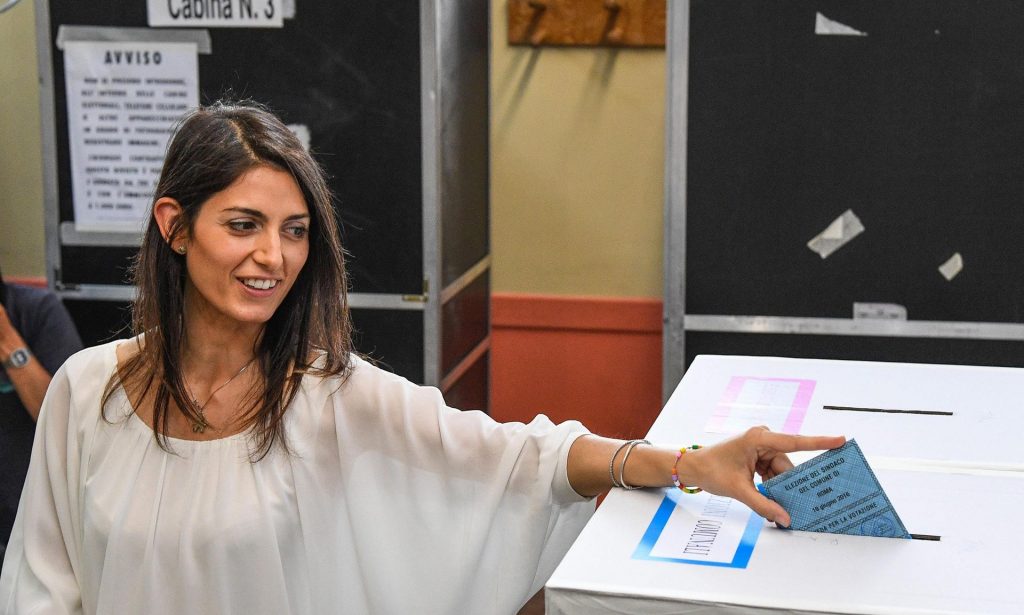
Photograph: Alessandro Di Meo/EPA
An anti-establishment outsider has been elected mayor of Rome and become the first woman to run the Italian capital.
Virginia Raggi, the Five Star Movement’s (M5S) candidate, won 67 per cent of the vote in the run-off ballot with the Democratic party’s Roberto Giachetti.
Giachetti conceded defeat less than an hour after polls closed.
“For the first time Rome has a female mayor in an age where equality of opportunity remains a mirage,” Raggi, 37, said in her victory speech.
“I will be a mayor for all Romans. I will restore legality and transparency to the city’s institutions after 20 years of poor governance. With us a new era is opening.”
The win by the M5S marks a direct challenge to the Democratic prime minister, Matteo Renzi, and reflects the electorate’s seething discontent with mainstream political parties.
Founded by comedian Beppe Grillo after the economic crisis, M5S received a quarter of the vote in the 2013 national elections but has until now failed to shake off its reputation as a protest party. With Raggi expected to take the reins in Rome when the outcome is announced on Monday, the movement would enter the heart of decision-making in the country’s capital.
The new mayor faces a series of problems in a city that has been leaderless for eight months, since the former Democratic mayor, Ignazio Marino, resigned following an expenses scandal. Rome has since been run by a special commissioner, Francesco Paolo Tronca, while the country’s anti-corruption watchdog has kept a close eye on the administration.
Battling corruption has been one of Raggi’s main campaign promises, tapping into public anger about the “mafia capitale” scandal, in which it emerged that city hall officials were involved in stealing millions from the state. Such criminality has contributed to the dire state of Rome’s public services, including rubbish collection and public transport, which are the top two complaints of residents.
Other challenges faced by Raggi come from within the political sphere; a male-dominated world where women have struggled to be taken seriously. Before the first round of voting on 5 June, Silvio Berlusconi refused to support one of the leading rightwing candidates, Giorgia Meloni, arguing that her pregnancy made her unfit for public office.
Raggi’s critics have tended to focus on her lack of experience – she has been a councillor for just three years – saying it renders her incapable of transforming Rome.
The prime minister will be watching warily, because a successful Five Star Movement administration in the capital would be a threat to his party.
Renzi’s party appeared likely to win the vote in the country’s financial capital, with Giuseppe Sala predicted to be named mayor of Milan, receiving between 49% and 53% of the vote, a slight lead against his centre-right rival, Stefano Parisi, with between 47% and 51%.
But the biggest shock came in the traditional centre-left stronghold Turin, where the incumbent Piero Fassino was trailing the M5S candidate Chiara Appendino, who had 50% to 54% of the vote..
M5S supporters gathered outside Appendino’s headquarters to give voice to the movement’s trademark chant of “onesta” (honesty).

